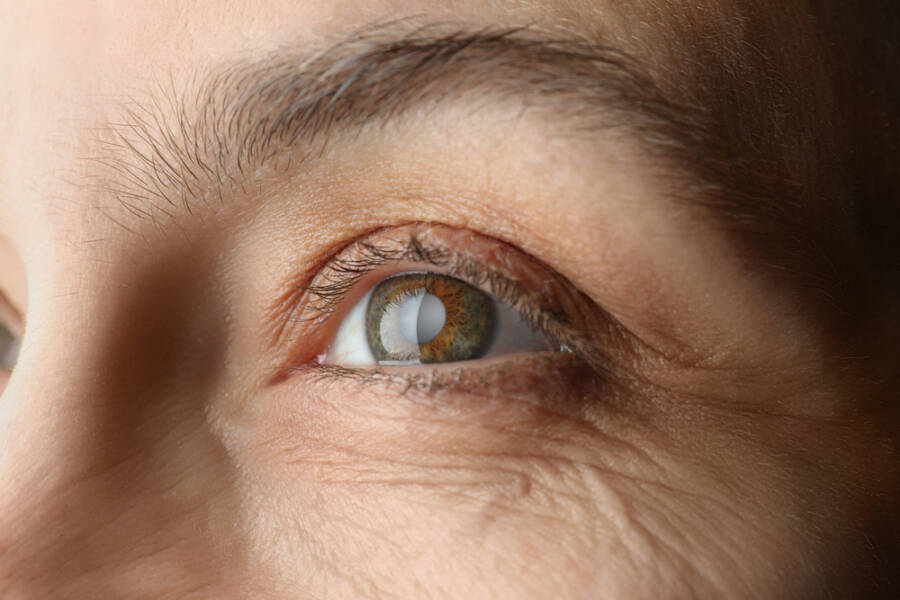Can you get LASIK, or is it too risky for you? Find out now!
You’ve probably heard about LASIK, since this is the most popular laser corrective surgery, with over 800,000 people per year using it to treat their eye problems.
LASIK is the shorter name, and it comes from laser-assisted in situ keratomileusis. Most of the time, those who get this surgery are between the ages of 20 and 40, but today we want to find out if seniors are also able to make their eyes better through this life-changing surgery.
Doctors say that there is no age limit for LASIK, and who is eligible for it or not is all based on the specifics of the patient. This means that doctors will analyze your health overall, and based on the conditions that are already affecting your health, they will decide if you are a suitable candidate or not.
It is essential to make it clear that studies have found that LASIK is most effective on younger eyes. Two groups of LASIK patients were evaluated by German researchers. Three hundred forty-one persons (aged 55 and over) and three hundred forty-one people (aged 30–40) made up the first group. Although the two groups’ levels of safety were comparable, they were not identical in terms of effectiveness.
But let’s see more about what conditions make you stick to your glasses forever. If you are suffering from any of these conditions, it might be a better idea to never get LASIK done! The risks are too dangerous.

Glaucoma
This is a group of eye diseases that cause damage to the optic nerve. The optic nerve is the main bridge between your eyes and your brain. They get the information from the environment and then, using the optic nerve, transfer it to the brain to process it, and this is how you use your eyes to see.
Glaucoma is the damage which most of the time is caused by abnormally high pressure in the eye, also known as intraocular pressure (IOP). If this condition remains untreated or is managed poorly, it can lead to permanent vision loss or even blindness.
Now, if you are among the people with uncontrolled glaucoma and you want to get LASIK, you should know that this might not be for you. This is a procedure known to raise intraocular pressure, and this is a serious risk for glaucoma patients who already have a high IOP.
If your glaucoma is under control, you should still be aware that your eye doctor will approach this procedure with extreme caution.
Blepharitis
This is a very common chronic condition that causes the inflammation of your eyelids, and most of the time, you will notice that it affects the edges of your eyelids. The main symptoms are redness, itching, irritation, and crusting or flaking around the base of the eyelashes.
These symptoms are indeed annoying, but people can live with them, and as a result, not so many see this as a serious condition. Indeed, the symptoms are mild most of the time, but when it comes to LASIK surgery, blepharitis can complicate things and bring a lot of risks.
One of the main concerns with blepharitis is the increased risk of eye infections. All of that buildup of debris and bacteria along the lash line makes the eyes more vulnerable, and in the case of surgery, this means that the chances of getting an infection are so much higher. This is why, if you have active blepharitis, this surgery is not recommended for you.
But if you manage to treat it or keep it under control, you might become a viable candidate for LASIK. Your doctor is the one who is able to decide when the right time for you to get the surgery done.
Thin corneas
Before anyone gets LASIK, doctors will evaluate the thickness of their corneas. Why? During this surgery, they need to create a thin flap in the cornea so the laser will be able to enter underneath and shape the tissue in order to correct your vision.
However, if your corneas are too thin, this process may compromise the structural integrity of the eye and increase the risk of complications. This is the reason why those who have thin corneas are not the best candidates for LASIK.
During the surgery, a portion of the cornea is removed, and if you have thin corneas, you might have some trouble after the surgery because when there is not much tissue left, your eyes are not stable anymore. This can also lead to corneal ectasia. This is a condition where the cornea becomes weak and begins to bulge, distorting vision.
Hopefully, there is a safer alternative known as photorefractive keratectomy (PRK). Compared to LASIK, PRK is better for those with a thin cornea because this surgery does not involve cutting a flap.
Diabetes
You know very well that diabetes is a chronic metabolic condition that affects how your body processes sugar. The problem with diabetes is that, over time, it can also affect your eyes. Yes, your vision can get affected, and this is a lesser-known complication of diabetes. Also, this condition interferes with your body’s ability to heal, and considering that LASIK is a surgery, this is very important to consider.
When your body is unable to control the sugar levels in the proper manner, the tiny blood vessels in the eyes can be damaged, and conditions such as diabetic retinopathy might appear. This is an issue anybody should be concerned about because it can make the outcome of the eye surgery unpredictable.
But having diabetes doesn’t automatically disqualify you from getting LASIK. If you have well-controlled diabetes, the doctor can perform the surgery on you free from significant eye complications. But be aware that the healing process can be slower.

Some autoimmune diseases
The best examples of this are rheumatoid arthritis and lupus, but there are also some other conditions that are part of this group. The thing is that these conditions are known to be autoimmune because the immune system mistakenly attacks the body’s own tissues, and this includes the tissues around your eyes.
So, since LASIK is a surgery, your body needs to be prepared for it. An autoimmune disease makes your body weak because, in order to recover properly, you need a well-functioning immune system.
For example, rheumatoid arthritis can also cause the inflammation of your eyes, and this can lead to some conditions such as dry eye or scleritis. Both of them interfere with LASIK outcomes.
Lupus is well-known to affect the vision, and the inflammation that appears because of it can compromise the stability of the eye’s surface. As a result, post-surgical complications might appear.
But besides this, there is also the medication used to treat autoimmune diseases. These meds are made to suppress the immune system. This helps manage the autoimmune conditions, but this reduces the body’s natural healing ability, which is essential when you want to undergo surgery.
Most people who suffer from autoimmune diseases are not the best candidates, but every case is unique. Sometimes LASIK could still be safely pursued, but you should discuss it with your primary care physician and an eye surgeon.
This is something that can help your eyes: YIVIEW Sleep Mask for Side Sleeper, Complete Light Blocking 3D Sleeping Eye Mask
You should also read: Why Ignoring Your Cholesterol Can Kill You






